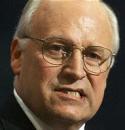Ward Churchill and Hans-Hermann Hoppe might not enjoy coffee together very much. I can clearly see the meeting ending in blows. But they do have some things in common, sure: both are radical critics of the State and the social status quo; both are tenured professors at state Universities in the West; and both have recently found themselves in administrative hot water for making controversial public statements.
Churchill’s case, so far, has been more widely reported. Thanks to the heroic efforts of a student journalist using Google, the Know-Nothing blowhard brigade finally discovered that Ward Churchill wrote an essay called Some People Push Back–which has been distributed on the Internet since 2001, and was expanded into a book-length treatment in 2003–in which he described the September 11 attacks as chickens coming home to roost, pointed out that the plane flown into the Pentagon was striking a military target, and that As to those in the World Trade Center … Well, really. Let’s get a grip here, shall we? True enough, they were civilians of a sort. But innocent? Gimme a break.
You’re hearing about all this now because Churchill, a professor at the University of Colorado at Boulder, was scheduled to speak on a panel at Hamilton College in New York on The Limits of Dissent
(because God is an ironist, I guess), and after a journalist at the student newspaper dug up Churchill’s essay and wrote a story on it, the Right-wing commentariat saw something they’ve been salivating over for a long time: a perfect opportunity to sink their teeth, hard, into the (allegedly Left-dominated) world of academia. So they deployed a predictable combination of media hue-and-cry and outright threats of violence, and managed to mau-mau Hamilton into cancelling the panel. Now, in hopes of a second victory for silence, they are pushing for University of Colorado at Boulder to follow it up by firing Churchill from his (tenured) professorship. The University’s Chancellor has so far agreed to bring a thorough examination of Churchill’s opinions before the Holy Inquisition:
And Colorado’s DiStefano, after an angry grilling from the
university’s Board of Regents — an elected body dominated by
conservatives — reversed himself and announced a 30-day
investigation of all of Churchill’s lectures and publications. This
is the first step, the chancellor said, in the legal process
required to fire a tenured professor.
Meanwhile, there have been Web site calls for the resignation of
Stewart for allowing Churchill to be invited in the first place.
— Washington Post 2005-02-05
Just a few days later, in Las Vegas, because–again–God is an ironist, anarcho-capitalist economics Professor Hans-Hermann Hoppe found himself brought before a disciplinary hearing by the administration at the University of Nevada in Las Vegas. Hoppe had a formal complaint filed against him by a student for his comments in a lecture on the economic concept of time preference, in which he decided to illustrate the concept by examples, and claimed that homosexuals, as a group, tend to have higher time preferences than heterosexuals–that is to say, that homos tend to prefer immediate gratification over deferred rewards more strongly than straights. He went on to insinuate that the emphasis on short-run effects over long-run equilibria in J.M. Keynes’s economic theories might be explained by Lord Keynes’s fondness for gay liasons. In response to the student’s complaint, UNLV is demanding Hoppe accept a letter of reprimand and a dock in pay in response to a formal complaint filed by a student in one of his economics classes; Hoppe is striking back with a letter-writing campaign and legal assistance from the ACLU.
The anarcho-capitalists who are coming out for Hoppe and the lefty anarchists who are coming out for Churchill might not want very much to do with each other. But both camps are right to point out that both of these cases represent dangerous threats to academic freedom. (Note: threats to academic freedom, not freedom of speech. The two are importantly different concepts, although both are valuable.) Unfortunately, both camps have also developed a maddening tendency to smother the point about academic freedom (or open debate more broadly) in a bunch of rally-’round-the-black-flag nonsense.
Hoppe and Churchill should not be punished by academic Inquisitors for the contents of their arguments. Academic freedom is absolutely vital to the functioning of a University (as a place of education rather than an indoctrination camp), and it’s absolutely vital to maintain a climate of vigorous, open debate in our culture. But it’s important to note that the reasons for protecting academic freedom apply to bad arguments as well as to good ones: defending Hoppe’s and Churchill’s freedom to make arguments without fear of professional reprisals doesn’t require defending the arguments they make. And that’s a good thing, because Ward Churchill is a dick, and Hans-Hermann Hoppe is a homophobic bigot. Their arguments shouldn’t be defended, because those arguments are indefensible.
It ought to be transparent why Hoppe’s claims are offensive–and I’m frankly tired of seeing libertarians play innocent on the matter. Hoppe’s latest comments are only the latest in a long record, and I’m frankly baffled that Ilana Mercer or anyone else would take seriously the notion that describing the comments as only a generalization about how homos usually prefer immediate gratification more strongly than breeders is supposed to make it less offensive. Does anyone think that Hoppe’s left-field ad hominem argument–insinuations that poofery might explain errors in Lord Keynes’s economic thought that Hoppe finds particularly grave–is really a vital teaching tool? Or that it doesn’t make his other comments on homosexuality and gratification seem just a little, well, bigoted?
Churchill’s essay, for its part, is a farrago of confusions, logical fallacies, and flat-out lies. Most of the nits aren’t worth picking here; what is worth pointing out is that the central theme of the essay depends entirely on the claim that when America
–that is, the American government–goes on a rampage around the world, we
are acting like bullies, and so we
have no grounds for complaint when we
are ruthlessly slaughtered by people [who] push back
. The problem here is that the people picked out by the we
changes with every use: the people who did the rampaging and bullying are the government and its agents; the people who are complaining are, I guess, ordinary Americans; the people who were ruthlessly slaughtered were a couple of thousand workers, the overwhelming majority of them neither involved with the military nor holding any foreign policy position in the U.S. government, who happened to commit the terrible crime of going to work one Tuesday. But the people are not the government, and they are not owned by the government. They are mostly–we’re anarchists here, remember?–the victims of the government. We
didn’t attack Iraq; we
rarely if ever have meaningful control over the war-policy machine that has wrought so much misery in the Muslim world. The crimes of the United States government do not license crimes against civilians who happen to be in the United States; any more than the crimes of Osama bin Laden or Saddam Hussein license crimes against civilians who happen to be in Afghanistan, Iraq, or whatever other part of the Muslim world the Leviathan is planning to stomp through next.
Churchill’s critics have repeatedly been accused of misunderstanding his arguments and taking his words out of context. Now, I have read the whole essay through several times, but you never know. So perhaps one of Churchill’s defenders could explain to me exactly what the proper, contextual understanding of this is:
In sum one can discern a certain optimism — it might even be call
humanitarianism — imbedded in the thinking of those who presided
over the very limited actions conducted on September 11.
Their logic seems to have devolved upon the notion that the
American people have condoned what has been/is being done in their
name — indeed, are to a significant extent actively complicit in
it — mainly because they have no idea what it feels like to be on
the receiving end.
Or, while we’re at it, this:
And when they do, when they launch these airstrikes abroad — or
may a little later; it will be at a time conforming to the
“terrorists”‘ own schedule, and at a place of their choosing — the
next more intensive dose of medicine administered here at home.
Of what will it consist this time? Anthrax? Mustard gas? Sarin? A
tactical nuclear device?
That, too, is their choice to make.
During the HUAC era, many people in the U.S. were drummed out and blacklisted from teaching because they were genuinely associated with Stalinist parties in the United States. That was wrong; but you shouldn’t have to act like Stalinists were anything other than dupes or bloody-minded opportunists to make the case that the blacklisting and the anti-Communist witch hunts were wrong. The case for their academic freedom shouldn’t have been contingent on their having the right beliefs. And the same is true for both Churchill and Hoppe: the fact that they are wrong does not mean that they should be fired.
I’ll be writing a letter on behalf of both of them; defending both Churchill and Hoppe from the administrative goon squad is important. But we shouldn’t let a siege mentality dull critical thought. The reason Churchill and Hoppe are in hot water is that they made controversial statements which are rationally indefensible and deeply offensive. The problem is the administrative response to the controversy, not the controversy itself; the way to respond to terrible arguments, among rational adults, is with other arguments, not with politically-driven intimidation.
Let’s begin.


